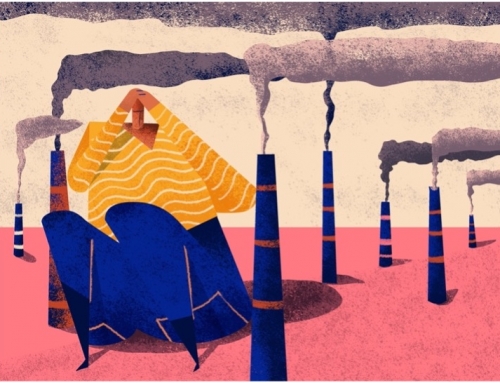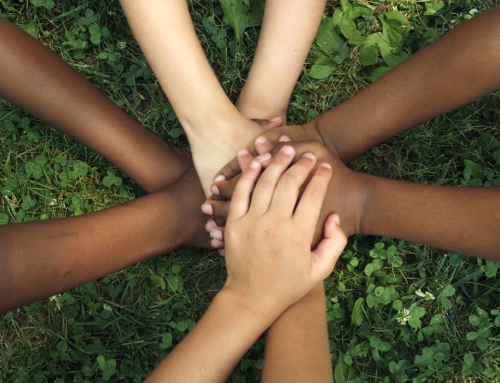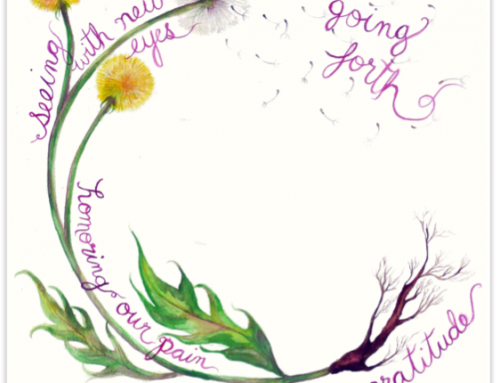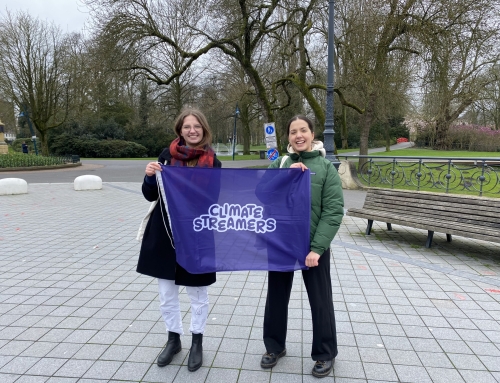In this article I mean to share some personal thoughts that arose after watching ‘Landscapes of resistance’ (2021), by Serbian director Marta Popivoda. The movie touched me and triggered a series of reflections on current society, which I felt compelled to share. ‘Landscapes of resistance’ (2021) is a documentary that portrays Sonja, a communist partisan fighting the Nazi occupation of WWII Serbia. Through a series of intimate conversations with Sonja, the film follows her journey of joining the communist and anti-fascist movement and her personal memories of her dramatic life as a partisan. I found it to be a movie of great cinematographic quality – touching, emotionally impressive, beautifully made from multiple points of view. But cinematography is not my field of expertise, so I would rather discuss it from a different stand-point. To be honest, the emotion that it startled in me most is anger. And worry. I am angry and worried about the ease with which the radical bias towards a specific political view is presented; towards a very alarming political view, I may add. Let me elaborate.
The movie intentionally leaves out the objectivity of the historical context and events, focusing on the lived experience of Sonja. This is part of its beauty; and who’s to say history can ever be objective? However, it implicitly directs the viewer into empathizing with Sonja and her story. I almost feel put in a corner for not relating to that. Because instead I feel angry at Sonja’s stories. Not at her as a person, nor at any of the individual people involved in the stories – on either side, may I say. But at what the stories and the way they are told imply and condone. I understand that the film wishes to call upon the humane character of the anti-fascist fight. But what I feel it manages, by not portraying the people and events that are recalled as exceptional, is to trivialize them. The aggressions of war – regardless of which side of the barricade they come from – are extreme events and it is important to highlight that. And not to normalize them.
Moreover, by omitting to discuss the political context of these stories, it seizes to question the arguments behind the actions of the partisans. The premises of the movie assumes an implicit righteousness of these actions. However, if I am to look a bit more critically at Sonja’s story of joining the movement, it could also be interpreted as the story of a youngster at the edge of society mixing with the wrong crowd. At no point do I see any form of argumentation of why she supports this cause. On the other hand, there are plenty of people around her, whom she seems to be fighting with and for. It seems her fight is more the result of a blind loyalty to the community that adopted her, for which she is willing to do anything, regardless of the cause they are fighting for, rather than a strong belief in the communist ideology. In her story this seems to become secondary.
Of course, the fact that the Nazis were so violently occupying the country makes it easy to associate with anything that fights against “the Enemy”. And the extreme conditions of this threat make it difficult to question “the Saviours”. It makes me wonder: if it would have been the other way around – the communists posing the threat upon her country and community, while the fascists fighting against that – who would Sonja stand with?
The explicit analogies with our times and with the current leftist activism – I apologize for using such strong terms, but – glorify the actions of partisans. The communist and neo-Marxist references that the film makes, so naturally encouraged and portrayed as righteous are incredibly dangerous. Is killing, regardless of the cause, an act that deserves glorification? I am angry and worried to recognize such overtones in the movie. I also notice, with revolt, slight influences of communist-era propaganda. Nazis were bad, communists fought them and won, so communists are the heroes. As usual, in hindsight, history presents whoever won the fight as the Good who overcame the Evil. But was it really a win?
Don’t get me wrong, fascism – then and today – makes me outraged. But communism is no better. Coming from a post-communist country (Romania), I am very sensitive to any kind of references that encourage this ideology. And I am frankly surprised that this film, coming from the same part of the world, would do so with such ease. Have we not learned from our past? Do we want to replicate the gruesome fights between the extreme left and right? The war was one extreme aggressively fighting another. Neither is Good. Extremism and aggression are always Evil, regardless of the ideas they sustain. In current times we notice such extremism especially rising on the right side of the political spectrum, as is pointed out in the movie. But countering this with a similarly radical, though ideologically opposed, political stance, as also suggested in the movie, seems to me a reproduction of this gruesome past. And I am incredibly worried and angry if this is where we are going.
I feel the rather closed-ended conclusion of the movie is that we should learn from the power with which the partisans fought, and foster that same power in today’s fight against fascism. But is this really the lesson we want to take from the war? Would we not rather avoid any cruelty on both sides? Can we not learn how to avoid repeating history? What I have learned – not form this movie – is that overcoming a violent regime with exactly the same aggressive tactics only shifts power from one radical ideology to the other. Communism ended up being just as oppressive and Evil as fascism – only in different ways. So no, I do not sympathize with Sonja’s fight.
The point I am trying to make is less about the movie and more about current political tensions and tendencies in today’s society. What I am trying to say is that an extreme left is not the solution for countering the far-right uprising. I hope we can learn from our past and do better, not repeat its atrocities. I wish Sonja’s story can teach us how not to go through the same traumas again, instead of being an example of what we should fight today. The fact that currently – in the same territories (landscapes, you could say) as the ones recalled in the movie – we are not living in such inhumane, life-threatening conditions anymore gives us the privilege of more nuanced and balanced political views. I wish we can use this privilege to step out of the narrative of ‘enemies’, ‘fights’, ‘winning and losing’. I hope we are able to heal the traumas of past wars enough to evolve; enough to overcome the grudge we hold on whoever hurt us, and be able to nurture a world that prioritizes connection and really includes everyone.





